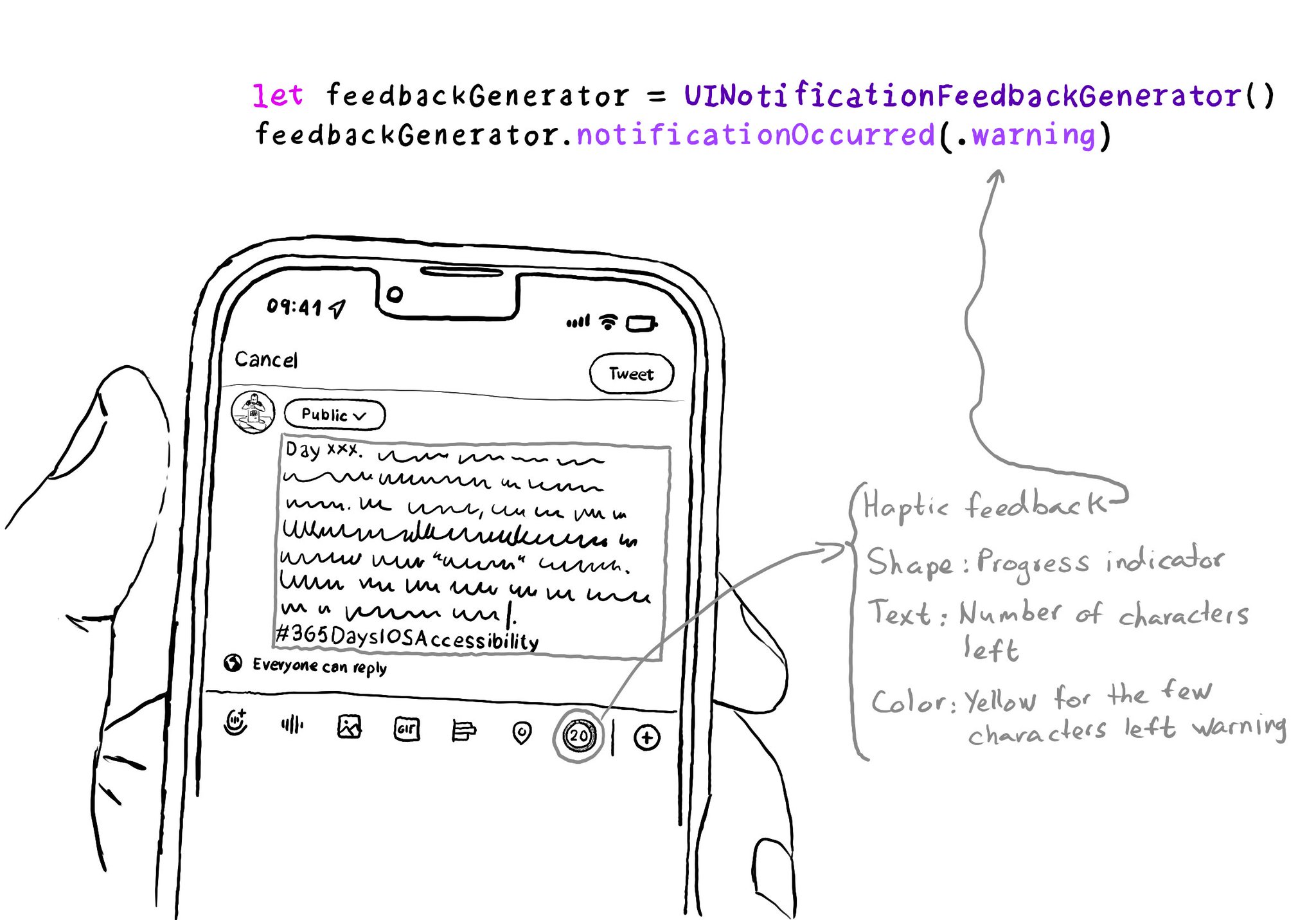Haptics helps you signal important information in multiple modes. For example, you can use a UINotificationFeedbackGenerator to reinforce some "warning" feedback. Twitter uses this when you are running out of characters when composing a tweet.

Haptics helps you signal important information in multiple modes. For example, you can use a UINotificationFeedbackGenerator to reinforce some "warning" feedback. Twitter uses this when you are running out of characters when composing a tweet.


Convey important information in multiple modes (sounds, haptics, colour, iconography, messaging...) so no-one misses it. Take Spotify's shuffle button. It is green when on, white when off, but it has also a dot indicator. https://wearecolorblind.com/examples/spotify-shuffle-and-repeat-buttons/
@NSSpain has a great history of having amazing accessibility talks in their schedule! “Accessibility in the Real World”, by @Sommer: https://vimeo.com/235317172 “How to build an app for everyone”, by @NovallSwift: https://vimeo.com/362163043 The super fun "Choose your own SwiftUI adventure - 3 Accessibility", by @twostraws and @PinkerStraws: https://vimeo.com/481768105 And, of course, this year's great "Bas: My Accessibility Story", by @basthomas: https://vimeo.com/751176747

When implementing a UISlider, it is a good idea to consider how much the slider value should change when swiping up/down to adjust it. It might not always make sense to do it in 10% increments, which is the default behaviour. Could be because the value at those intervals doesn't make sense, or feel random, or because it wouldn't provide the user with a fine enough control being able to go through the whole slider in just 10 swipes. It user will still be able to adjust the slider to any value by double tapping and holding and then moving the finger left or right, bypassing VoiceOver gestures. VoiceOver announces the new value as it changes.
Content © Daniel Devesa Derksen-Staats — Accessibility up to 11!